Why we SAY NO TO PALM OIL and you should too!
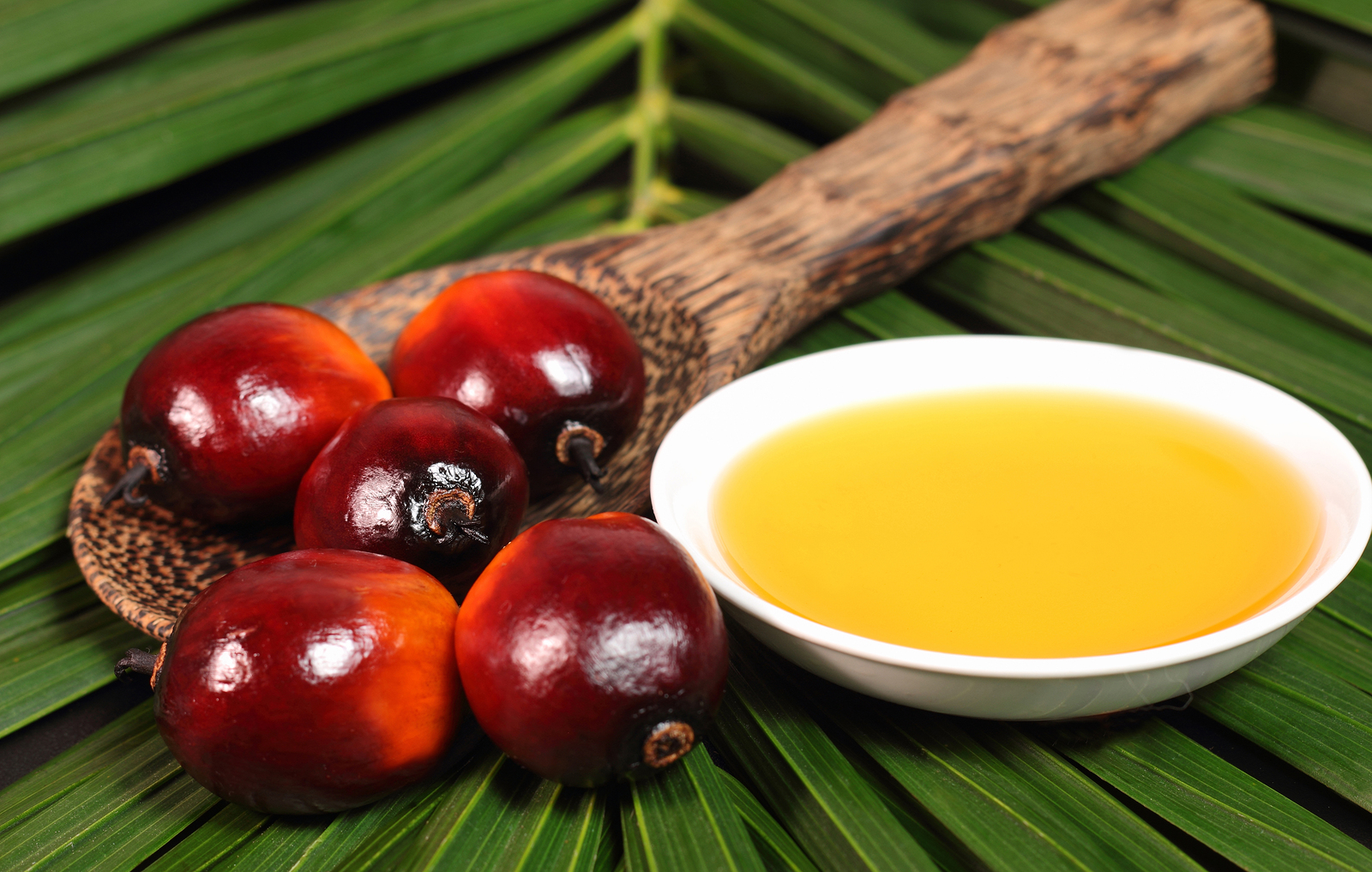
Palm oil is a vegetable oil abundantly found in every-day processed food and non-food products such as baked goods, cosmetics or biofuel. It’s cheap and quite healthy if consumed in moderation. Its molecular structure is quite similar to coconut oil.
Cool! A cheaper version of the coconut oil! I’ll sign-up for that, is what you may think right now. Don’t be too quick in making the switch. If you have never heard about the impact palm oil has on people and the environment, read on! I’m sure you will join me and thousands of other people who SAY NO TO PALM OIL.
What Is Palm Oil?
Palm oil shouldn’t be confused with coconut oil. They both come from a different tree and look quite different too. Palm oil is obtained from the plum-like, red fruit of the oil palm tree which contains one single seed or kernel. The small plum fruits grow in large bunches that can weigh up to 50 kilograms or a 100 pounds.
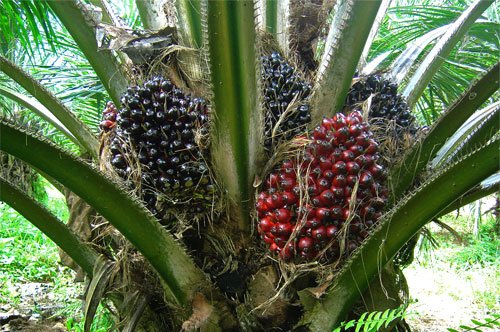
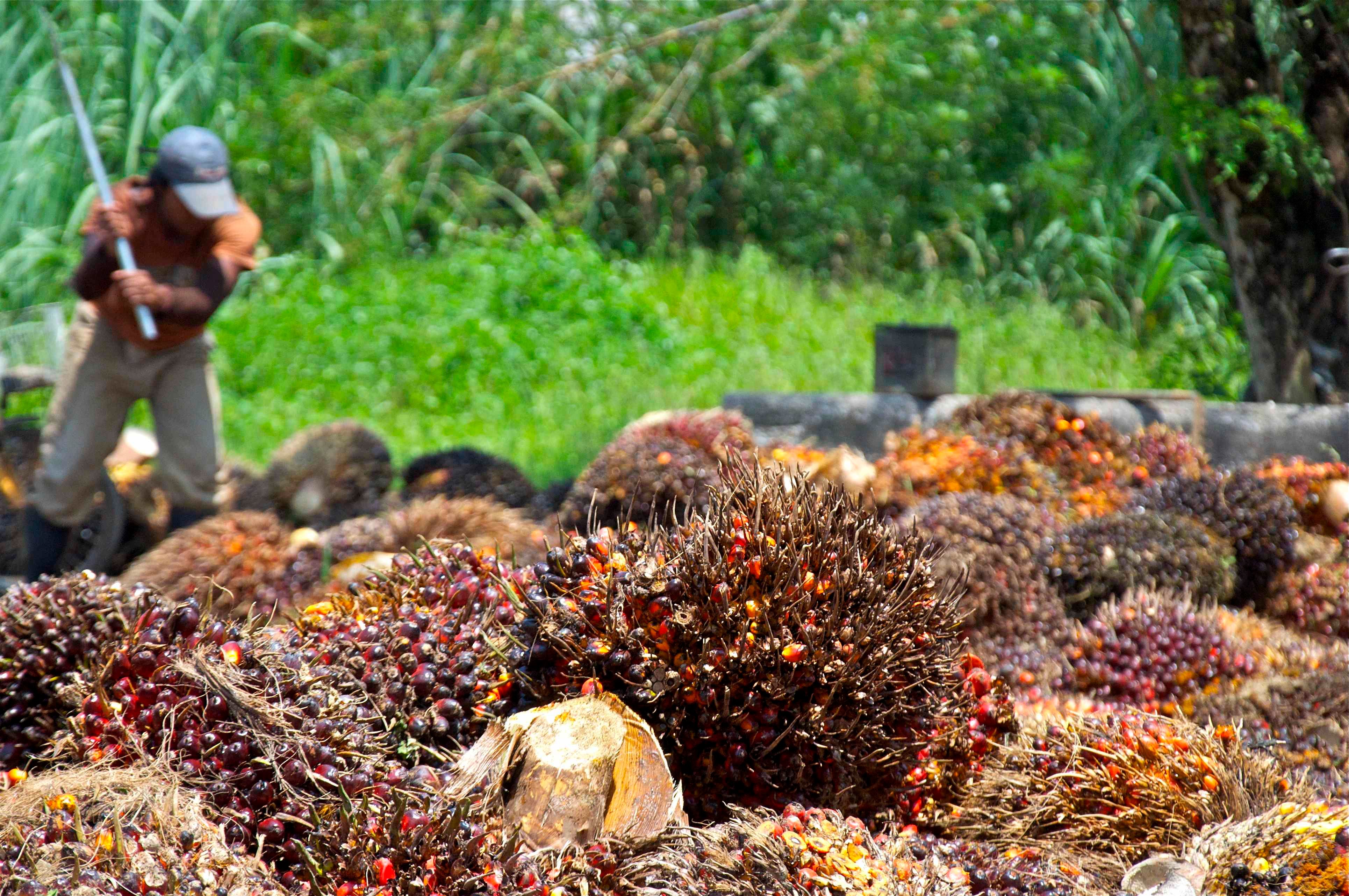
Palm oil is extracted from the pulp of the fruit and can be found in many of your food sources. Palm kernel oil, on the other hand, comes from the seeds. Though you will see palm oil popping up in many baked goods or other processed foods, palm kernel oil is mainly used in the manufacturing of a broad range of cosmetics.
Why Is it so popular?
Many food producing companies have made the switch from animal and vegetable oils to palm oil. Since the tree is a very productive crop, the yield is far better than other vegetable oils. Plus, it is cheap to make.
Why We Should Take Action
Since it is so cheap, the demand for palm oil is rising every day. To feed this growing need tropical rainforest and peatlands in Southeast Asia have to make room for palm oil plantations.
To give you an idea, the global palm oil production has doubled over the past decades. An estimated 50 million tons of palm oil is produced every year. New plantations constantly emerge and the old ones are expanding their territories, replacing millions of hectares dense, bio-diverse rainforest.

In Indonesia alone, more than 6 million hectares is dedicated to the production of palm oil. And it doesn’t stop there. They are constantly making room for more.
In the past, efforts have been made to set up a sustainable industry through the Roundtable on Sustainable Palm Oil (RSPO). Unfortunately, deforestation continues at a fast pass. And what's even worse, these members don’t even seem to care.
RSPO members include Unilever, Cadbury’s, Nestle, Tesco, Cargill, and ADM. Even though these are all members of the RSPO, they are taking no steps to avoid deforestation, child labor, animal burning, and other criminal practices.
Pristine jungles and land from local people have been taken without their consent. So while the RSPO creates the illusion of helping nature and sustainably producing palm oil to justify their expansion, nature still has to make way and children are still used to increase their profits.

The Impact Of Palm Oil Production On Nature And Its Inhabitants
Deforestation
In Indonesia and Malaysia, where palm oil production is leaving the biggest marks, a piece of the rainforest the size of 300 football fields is cleared nearly each hour to make way for the production of this one cheap, widely used vegetable oil!
What makes it worse, they get the full support of the government. They sell the ground to wealthy foreigners who log it first and sell the precious hardwoods, including teak, sandalwood, and ebony. Then the remaining vegetation is burned down to the ground to make way for rows of palm oil trees.
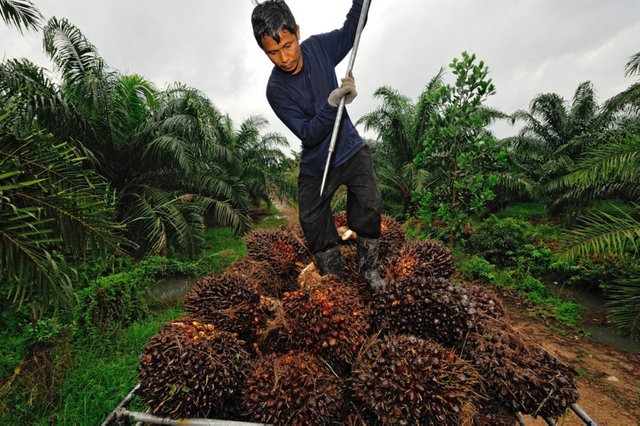
Child Labor
To work these plantations, locals, including thousands of children are hired. They have to work for very little pay and in unsafe conditions. Many of them end up in the palm oil production through debt bondage or human trafficking.
Short-Term Solution
After only 20 to 50 years the soil will be drained of all the nutrients, leaving the land barren and broken. Palm oil production is no long term sustainable production method and will only lead to more deforestation in the future.
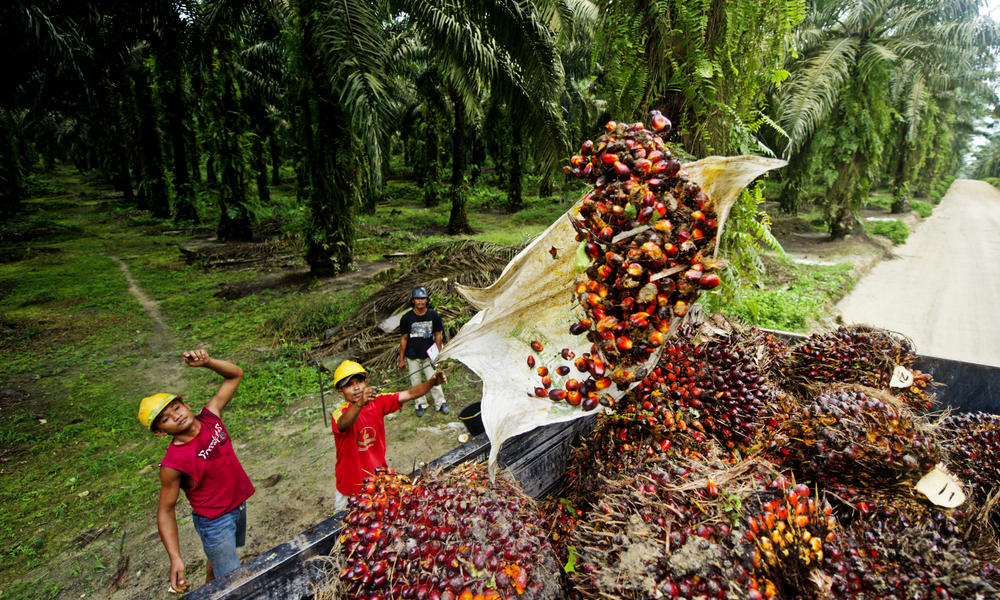
Heavy Impact On Wildlife
Since 300 football fields of rainforest disappear every hour, many animal species are losing their natural habitat. Sumatran tigers, clouded leopards, orangutans, Asian rhinoceros, Sumatran rhinoceros, sun bears, elephants, and many more are in the danger zone. In the last 20 years, palm oil production has destroyed 90 percent of the homes of these animals.
And if losing ground isn't bad enough already, thousands of animals are burned alive while they burn down the remaining plantation to make room for palm oil trees. Since these animals are pushed away, tigers and other dangerous animals are now living closer to humans and villages.
With all their natural food sources being killed, tigers often venture into villages and attack humans. Then these tigers get the stamp man-eater and are killed for it! But can you really blame the animal? In our selfishness, we are taking everything in this world while never asking ourselves the question if this is normal.

Global Warming
River pollution and erosion are two common symptoms of palm oil production. Furthermore, the constant fires to burn down the remaining trees produce a toxic smoke which poisons the plantation workers and the smoke is also a huge contributor to greenhouse gas production and global warming.
Also, fewer trees mean less carbon dioxide being filtered out of the air to produce fresh air for us to breathe.
Palm Oil Is Everywhere. And it is hiding under at least 25 sneaky names on the food label
Palm oil and its derivatives are being used in most of our processed, packaged foods and cosmetics. Products containing palm oil have a longer shelf life than other vegetable oils and butter. And it also makes the cosmetics creamier.
You can find palm oil in bread, biscuits, chocolate, ice cream, sandwich spreads, chips, instant noodles, cooking oils, margarine, TV dinners, shampoo, lipstick, shower gels liquid detergents, biofuels, etc.
And this is just a tip of the iceberg.
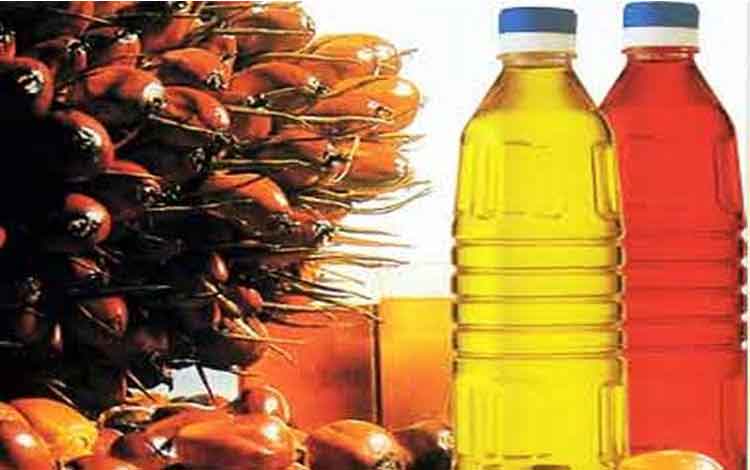
Though fresh foods are always best under any circumstance, if you buy processed, packaged foods make sure to scan the label for the following sneaky aliases of palm oil:
- Elaeis guineensis
- Ethyl palmitate
- Glyceryl
- Hydrogenated palm glycerides
- Octyl palmitate
- Palm fruit oil
- Palm kernel
- Palm kernel oil
- Palm stearine
- Palmate
- Palmitate
- Palmitic acid
- Palmitoyl oxostearamide
- Palmitoyl tetrapeptide-3
- Palmityl alcohol
- Palmolein
- Sodium kernelate
- Sodium laureth sulfate
- Sodium lauryl lactylate/sulphate
- Sodium lauryl sulfate
- Sodium palm kernelate
- Stearate
- Stearic acid
- Vegetable fat
- Vegetable oil
ARE YOU READY TO SAY NO TO PALM OIL AND HELP SAVE PLANET EARTH???
Thanks for reading! Until next time!

ALL CONTENT IS MINE AND ORIGINAL!
PICTURE(s): Google, Stock photos
I am a Nigerian. Born and raised in the Mid Western region (Delta State) where we have palm trees in abundance. We are from originally from Edo State, but settled in Delta State where I was born . In fact, my grandmother (about 95 years old) who is still alive makes palm oil. That is her occupation! In my state capital, Benin City, we have an institute known as Nigerian Institute for Oil Palm Research (NIFOR),http://nifor.gov.ng/ . A couple of days back, when I spoke with my mum, she told me that grandma (her mother, my grandmother) made palm oil and palm kernel oil. Honestly, I don't see anything bad in using palm oil in its natural form. As a biochemist and public health scientist, I know that we really don't need more than 30g of fat a day. So when using palm oil we shouldn't use more than a table spoon for instance. Since I came to Belgrade, I've not seen anywhere palm oil is sold (I mean red palm oil the way it is naturally). All you see is bleached palm oil and I don't buy that because the bleaching process strips it of essential nutrients. That said. I will continue to cherish my grandma's palm oil and any other palm oil that maintains its integrity, using it wisely for my delicious Nigerian meals. Thank you for sharing your post.
Hi @maryfavour! Thanks for your input and sharing your story. Palm oil is indeed a healthy oil, especially if you make it yourself! Just as coconut it contains MCTs, but it is the impact on nature and the people who work in the industry. I'm glad to hear that the food industry hasn't commercialized this in Nigeria. In SE-Asia the oil is causing a huge devastation. If they keep doing this, animals such as the Sumatran tiger will go in extinction and not much of the pristine tropical rainforest will remain. That's what concerns me the most! Thanks again for your insights! Enjoy the rest of the day!
Hello, @amy-goodrich! You are welcome. Glad that we both agree that palm oil as well as coconut oil contain medium chain tryglycerides (MCTs), which are actually healthy. I had little to no information reagrding it's impact on nature and people who work in the industry. Now, I know better. Thanks to your enlightenement. In Nigeria, we do not have such challenges of deforestation as South East Asia. I also know that we have Forest Research Institutes, with one situated in Benin-City, the capital of my state of Origin Edo State. Here, the link http://www.frin.gov.ng/frin1/benin.html
One of the responsibilities that the forest research institute is charged with is to look into issues of deforestation. Maybe SE-Asia need to come and learn from us (best practices) how we preserve our forest. Cheers.
Think we kinda have the same education and passion for health. Before I started to travel and work online, I studied the cell cycle of plants and pathways of the saponin production at the Univerity of Ghent, Belgium. Miss my nerdy, sciency job sometimes! But love the freedom of working online and being my own boss! SE-Asia palm production can def learn something from Nigeria! If I could I would go there tomorrow and send them all over for a good lesson in sustainability and eco-friendly living! Thanks for your addition and insights!
Thank you, thats a great post!!!!
Thanks @xels! I'm glad you enjoyed the post!
Avoid nutella 30% of it is palm oil, they even starter campaign to promote palm oil
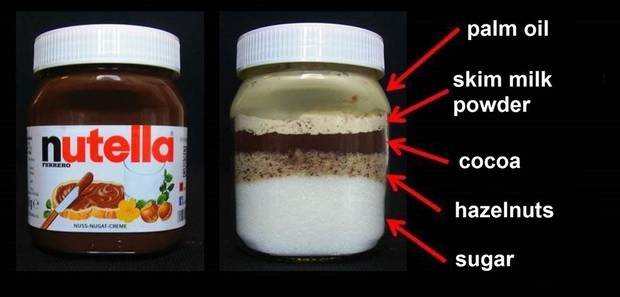
I know. Scary isn't it?Thanks for the tip! There is actually a very easy way to make your own "healthy" palm oil free alternative. Here's the recipe if you are interested ;-) https://steemit.com/recipes/@amy-goodrich/homemade-nutella-chocolate-spread-with-actual-hazelnuts-and-no-added-sugar
Thanks but i'm too lazy to make it by my own, i'm buying some organic hazlenut cream. https://www.alcenero.com/en/product/ciokocrem-organic-hazelnut-spread/ It is not so good as homemade but hundred times better then nutella
Hehe! Doesn't take long to make though! Since we have no (or almost none) convenience foods here in Cambodia, it's all homemade here! Have a great day!
I stopped using palm oil a while ago, It's good to see that other people are concerned too.
Awesome post
That's so great to hear! Thank you for leaving a comment and helping to raise awareness ;)
thank you for sharing :)
My pleasure @christking!
@amy-goodrich i'm here already one week, i will be happy if you saw my post. thank you :)
It's crazy how many products have palm oil in them these days? After learning about where it comes from and the clear cutting behind it, I always check the label for it. Thank you for raising awareness!
Same here! It is so sad and disgusting! Thank you too for taking this issue to heart and spread the word... I couldn't believe it either how many products rely on this oil.
More and more people are being aware and questioning where things come each day. Especially thanks to platforms like Steemit! :)
It sure is! Crypto and blockchains definitely have the power to chance the world!
Sad but true ... :( Thanks for sharing !
So sad indeed! Thanks for your support ;)
I stopped using palm oil years ago after I saw what they were doing to the existing jungle to make room for palm-oil plantations.
slightly off topic: I disagree a lot with "environmentalists" about the causes, effects and hyperbolic predictions of cataclysmic destruction of the Earth and all its inhabitants by global warming/climate change. I can however see a really fucked up situation like the one highlighted in this article., and be completely appalled at the destruction of an ancient, beautiful jungle and all the repercussions associated with its demise.
Thank you so much for shedding some light on this disaster and hopefully changing some people's minds about the costs vs. benefits of using palm oil. Hopefully it's not too late to fix some of this.
Thank you so much for your comment @cavemanrob! Let's us hope it is not too late to fix this broken world!
Great article. I had no clue how mass produced these trees were becoming. Yikes! Not good.
Thank you @queeneleanor! It's crazy and definitely not good!
I try to avoid a maximum this oil. And not to use too much oil in general. In any case your article is great you're someone good.
Thanks my friend! That's so kind of you to say!